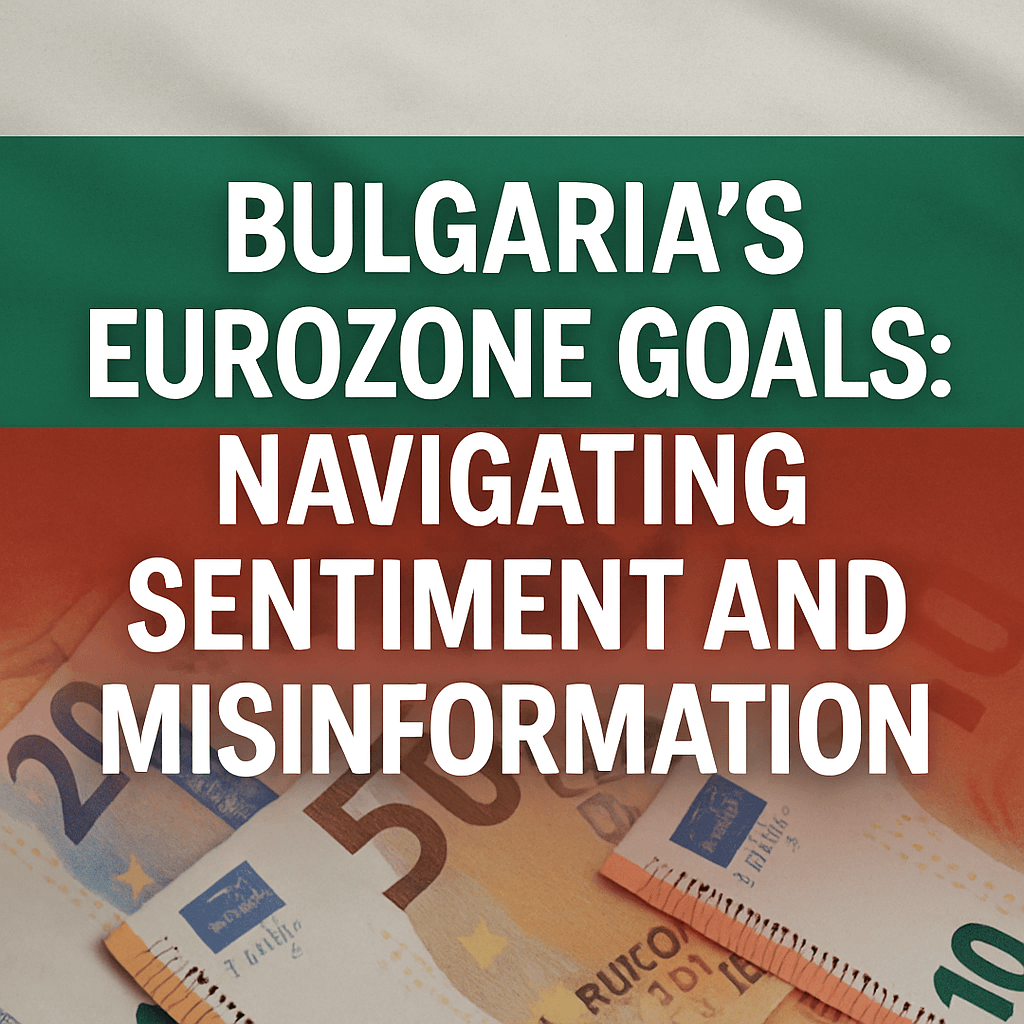Bulgaria’s Eurozone Goals: Navigating Sentiment and Misinformation

Bulgaria is on the cusp of achieving a long-standing goal: joining the euro currency union, a move that would signify deeper economic ties with the more prosperous nations of Western Europe. However, the current government faces significant populist backlash against the shared currency. This resistance is particularly pronounced just before a critical decision from European Union (EU) authorities regarding Bulgaria’s candidacy.
Public Sentiment and Economic Fears
Growing apprehensions about inflation, poverty, and general economic uncertainty are exacerbated by disinformation campaigns circulating on social media, which aim to stoke opposition against the euro. This discontent aligns with a broader trend of increasing support for populist and anti-EU parties throughout Europe, a phenomenon that is being exploited by nationalist and pro-Russian factions within Bulgaria, a nation that remains one of the EU’s poorest, with systemic issues of corruption.
Retirees such as 78-year-old Tanya Ignatova express a common fear: “Adopting the euro will make us feel the threshold of poverty. After all, prices will be in euros,” reflecting a sentiment prevalent among many Bulgarians. Mario Georgiev, another retiree, adds, “Bulgaria is not ready for the euro. Someday we may be ready, but not now.”
Recent Protests and Political Dynamics
On a more active front, several thousand Bulgarians rallied in the capital recently, protesting against the euro adoption and calling for a national referendum on the transition from the lev to the euro. Kostadin Kostadinov, the head of the pro-Russian Varazhdane party, declared to the crowd: “Bulgaria has risen and declared: Freedom, we choose the Bulgarian lev!”
While a segment of the population publicly disavows the euro, a significant subset—including younger citizens—argue that EU membership has already delivered substantial benefits, and whether the currency is the lev or the euro should not affect their economic reality. As 26-year-old Konstantin Bozhinov articulates, “We have inflation now and we will have it in the future.”
EU Assessment and Future Prospects
The Bulgarian government is pushing for deeper European integration despite these challenges, having formally requested a review to determine if it meets the Maastricht criteria—including low inflation, sound government finances, and legal conformity with EU standards. In response, the European Commission is scheduled to announce its findings shortly, with the potential to advance Bulgaria’s candidacy in the weeks following.
During a previous review in 2022, Bulgaria did not fulfill the inflation requirement. However, recent data suggests that inflation has subsided, creating a more favorable climate for the government’s renewed push. President Rumen Radev has notably encouraged the conversation around a potential referendum, citing widespread public concerns about inflation and purchasing power—concerns that have recently been underscored by protests against the EU.
Underlying Disinformation Campaigns
Compounding these socioeconomic tensions is a wave of disinformation that has infiltrated public discourse. Instances include false claims suggesting that the EU intends to seize citizens’ savings if not spent within a certain timeframe, as well as the unfounded fear that the introduction of a digital euro would enable state surveillance and social control.
Ognyan Minchev, director of the Institute for Regional and International Studies in Sofia, asserts, “There is a powerful brainwashing of the average Bulgarian. Illusory fears are being spread, lies are being told wholesale, unscrupulously and brazenly.” This disinformation often taps into existing anxieties around economic stability and national sovereignty.
Economic Implications of Eurozone Membership
From an economic standpoint, analysts argue that joining the euro may not radically alter Bulgaria’s financial landscape in the immediate term, given that the lev is already pegged to the euro at a fixed rate of 1 lev for every 51 euro cents. The transition to the euro could yield benefits such as lower borrowing costs and improved price comparability for consumers, along with eliminating the currency exchange barrier for travelers within the Eurozone.
Furthermore, Bulgaria’s government currently maintains a commendably low debt level of 24.1% of GDP—among the lowest in the EU and adhering well below the 60% threshold established by euro membership criteria. This fiscal prudence sets Bulgaria apart from Greece, which entered the eurozone in 1999 under fiscally precarious conditions that eventually led to widespread economic turmoil across Europe.
Conclusion: Ahead of European Integration
Despite various apprehensions regarding inflation—historically a real concern during currency transitions, albeit typically resulting in less than 1% inflation—the overall economic landscape suggests that Bulgaria remains well-positioned for euro adoption. Zsolt Darvas, a senior fellow at the Bruegel think tank in Brussels, emphasizes that transitioning to the euro would carry minimal risks given Bulgaria’s robust fiscal health: “The risk of Bulgaria becoming a fiscal risk to the eurozone is essentially zero.”
As the nation grapples with public sentiment shaped by historical anxieties and current socioeconomic realities, the decision surrounding euro adoption will likely have long-lasting effects on Bulgaria’s path within the EU.
Source: fortune